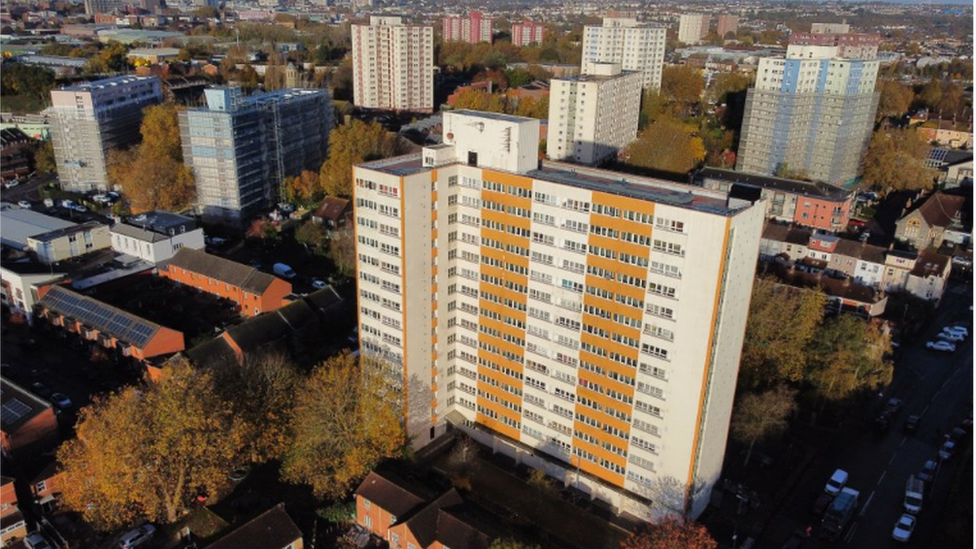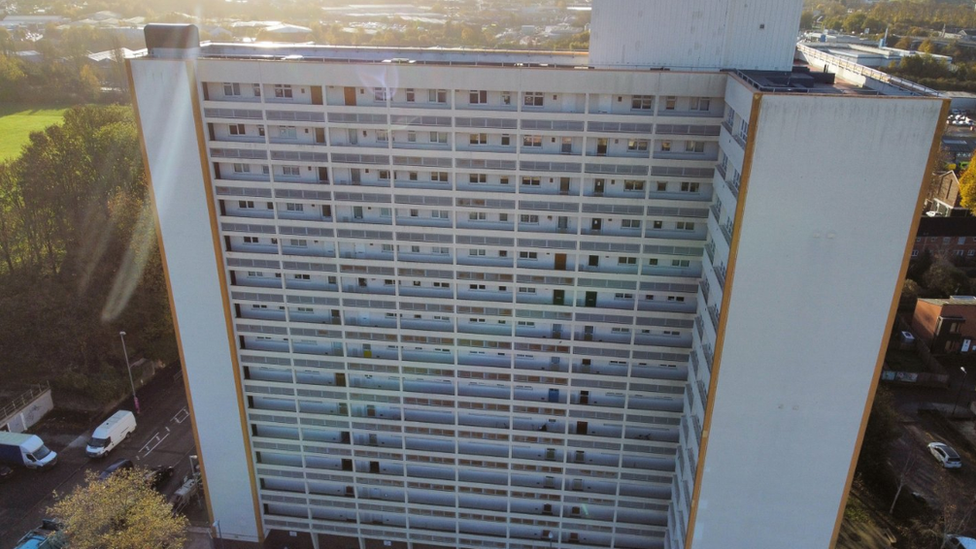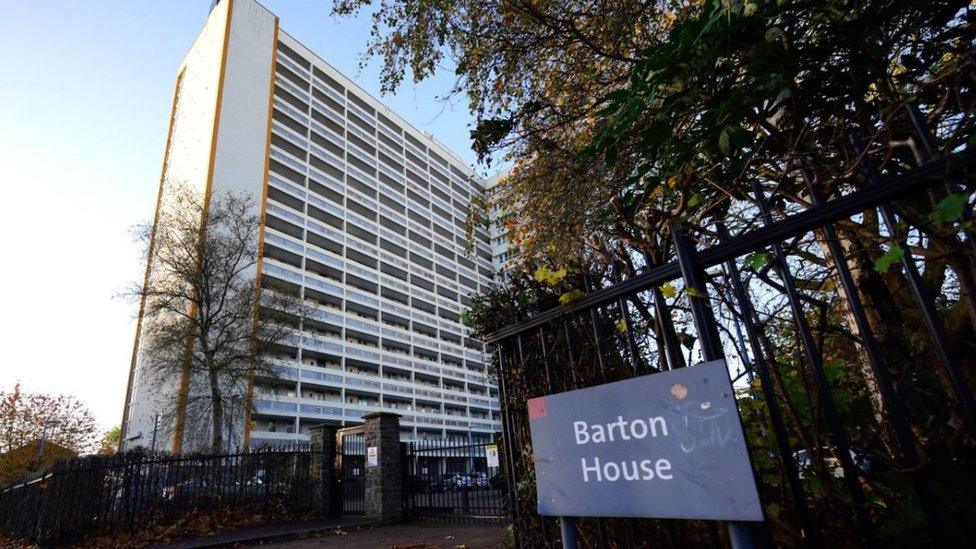Warning about towers like Barton House in Bristol made years ago
- Published

Barton House in Bristol was evacuated on Wednesday
Authorities were warned years ago about the safety of tower blocks built in the same way as Barton House, it has emerged.
More than 400 residents were forced to leave the Bristol building on Tuesday after a major incident was declared.
The council said a new report showed the building might not be safe in the event of a fire or explosion.
But all councils were asked to check blocks built with large panel systems (LPS), like Barton House, in 2017.
In a letter, the government's Department for Communities and Local Government highlighted concerns with LPS buildings and requested checks on their structure be carried out.
LPS is a construction system involving the use of pre-fabricated concrete panels. Campaigners have long warned about its potential dangers and there have been high-profile failures.
Ronan Point, a tower block with LPS in London, partially collapsed in 1968 after a gas explosion, killing three people.
And two tower blocks in Portsmouth, both made using LPS, were torn down in 2022 after the local council found the original construction was not strong enough.

More than 400 Barton House residents were forced from their homes
Following a freedom of information request in 2018, Bristol City Council (BCC) said it had established strengthening works and concrete repairs were carried out in its buildings with LPS during and shortly after 1970.
The latest structural report on Barton House - which was handed to the council on Monday and led to the evacuation - was ordered as part of work to assess potential future options for the building given its age and method of construction, Bristol's mayor said on Wednesday.
The Guardian newspaper is now reporting even more concerns. , externalThe paper claims leaked minutes from the government's structural stability working group advised civil servants last year dangers remained.
The group warned many blocks built using LPS had not been fixed and there were safety concerns as a result, the paper reported.
'Built quickly and cheaply'
Researcher Hannah Brack has been looking at the issues around using LPS on buildings for many years and said it was a UK-wide problem.
"These blocks were built very quickly and very cheaply as an answer to the housing crisis post war.
"There are inherent defects and I think one of the problems in Bristol is that they have these beams and columns where they are supposed to have reinforced bars that meet each other and are tied off together.
"The problem there [at Barton House] is that they are not tied off," she said.
Barton House: "I've been reporting cracks in the wall for years."
Danielle Gregory, from campaign group Tower Blocks UK, believes the government did not check up on local authorities after the 2017 warning letter.
She said: "When the government wrote to LPS owners and asked them to carry out checks, there wasn't any real pressure on them to do so. No one was checking that they had done it.
"Now the new Building Safety Act, external (BSA) is coming into effect and they're going to have to show documentation that they've undertaken construction assessments and do have an understanding of the history of these blocks."
A Department for Levelling Up, Housing and Communities spokesperson said the government "introduced some of the toughest building safety regulations in the world" through the BSA.
It said the act introduced a new building safety regulator which would "oversee a culture of higher standards throughout our built environment" and "actively monitor structural and fire risks and advise government on any action that may be needed".
The BBC is currently investigating the warnings around LPS buildings and the process which led to the evacuation of Barton House.

Follow BBC West on Facebook, external, X, external and Instagram, external. Send your story ideas to: bristol@bbc.co.uk , external
Related topics
- Published15 November 2023

- Published19 December 2023
